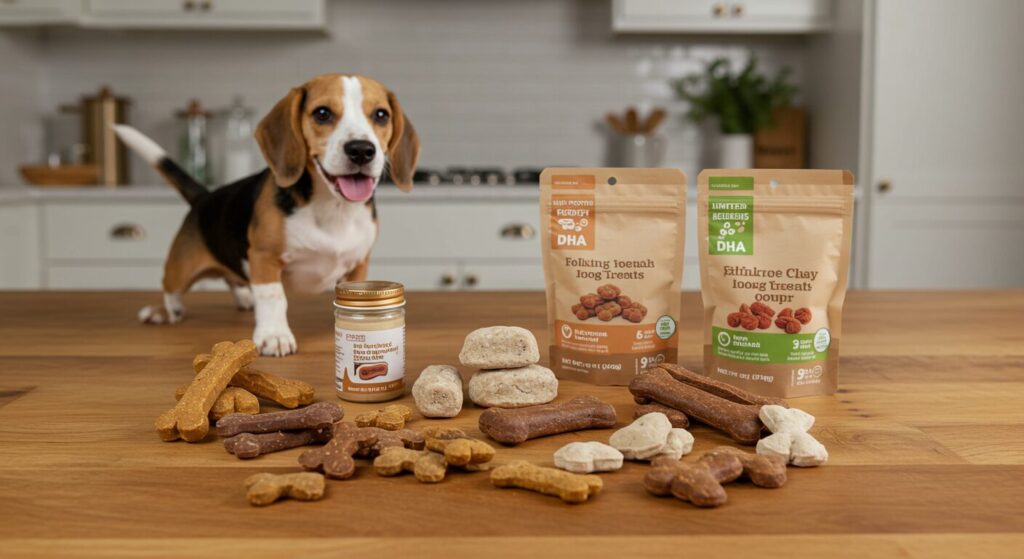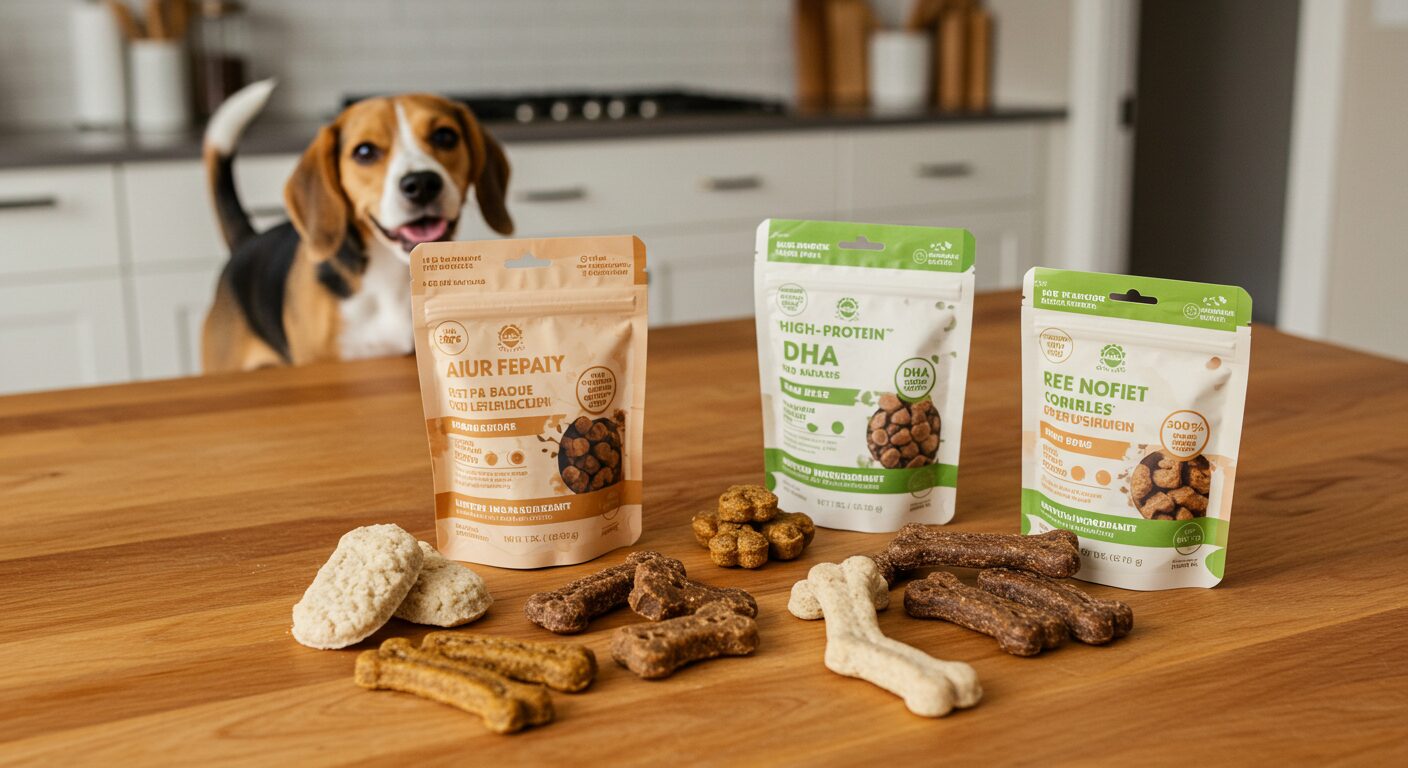Can Puppies Eat Dog Treats?
Yes, puppies can eat dog treats, but they must be appropriate for their age, size, and nutritional needs. Not all treats are safe for young dogs, and some can even pose health risks if given too early. Choosing the right treats is essential for their growth, digestion, and overall well-being.

What Types of Dog Treats Are Safe for Puppies?
When selecting treats for a puppy, ensure they are designed specifically for young dogs. Puppies have different nutritional needs than adult dogs, requiring treats that are soft, small, and easily digestible.
- Soft Treats: Puppies have sensitive teeth and gums, so hard treats can cause discomfort or even dental issues.
- High-Protein Treats: Since puppies are in a growth phase, protein-rich treats can support muscle development.
- Limited-Ingredient Treats: To prevent digestive upset, opt for treats with minimal ingredients and no artificial additives.
- DHA-Enriched Treats: DHA (Docosahexaenoic Acid) is essential for brain development, and treats containing this nutrient can be highly beneficial.

At What Age Can Puppies Start Eating Treats?
Puppies can start eating treats at around eight weeks old, but they should be given in moderation. At this age, their digestive system is still developing, so treats should be introduced gradually to avoid stomach upset.
Veterinarians recommend that puppies under 12 weeks should primarily consume their mother’s milk or a high-quality puppy formula. As they begin transitioning to solid food, introducing soft and nutritious treats can help with training and positive reinforcement.

How Many Treats Can Puppies Have Per Day?
Treats should make up no more than 10% of a puppy’s daily calorie intake. Overfeeding treats can lead to nutritional imbalances and weight gain. The number of treats will depend on the puppy’s breed, size, and activity level.
For example:
- A small breed puppy (like a Maltese) may only need 1-2 small treats per day.
- A medium breed puppy (like an Australian Shepherd) might be okay with 3-4 small treats.
- A large breed puppy (like a Golden Retriever) can handle 4-5 small treats as long as it fits within their daily calorie needs.
What Ingredients Should You Avoid in Puppy Treats?
Some ingredients can be harmful to puppies, even if they are present in adult dog treats. Always check the ingredient list before purchasing or making homemade treats.
Harmful Ingredients to Avoid:
- Artificial Preservatives: BHA, BHT, and ethoxyquin can be harmful over time.
- Xylitol: A sugar substitute that is highly toxic to dogs.
- Excessive Salt and Sugar: These can lead to dehydration and obesity.
- Dairy Products: Many puppies are lactose intolerant, making dairy-based treats difficult to digest.
- Rawhide: While popular, rawhide can be a choking hazard and cause digestive blockages in puppies.

Can Homemade Treats Be a Safer Option?
Yes, homemade treats can be a safer alternative if made with puppy-friendly ingredients. Preparing treats at home allows you to control what goes into them, avoiding harmful preservatives and artificial additives.
Easy Homemade Puppy Treat Recipe:
Banana & Oat Puppy Bites Ingredients:
- 1 ripe banana
- 1 cup oat flour
- 1 egg
- 1 tbsp peanut butter (xylitol-free)
Instructions:
- Preheat the oven to 350°F (175°C).
- Mash the banana and mix it with the oat flour, egg, and peanut butter.
- Form small bite-sized pieces and place them on a baking sheet.
- Bake for 10-15 minutes or until firm.
- Let cool and store in an airtight container.
These treats are soft, nutritious, and easy for puppies to chew.
Can Puppy Treats Help with Training?
Yes, treats are one of the best tools for positive reinforcement training. Puppies respond well to rewards, and using small, tasty treats can encourage good behavior.
For best results:
- Use small, soft treats to avoid overfeeding.
- Reward immediately after desired behavior.
- Rotate treat flavors to keep your puppy engaged.
Are There Special Treats for Teething Puppies?
Yes, teething puppies benefit from specially designed treats that soothe their gums and relieve discomfort. Look for:
- Frozen carrot sticks (natural and soothing for gums)
- Soft chew sticks (made specifically for puppies)
- Chilled wet washcloths (for a cooling effect on gums)
Teething typically starts around 3-4 months old and lasts until 6-7 months, so offering appropriate chew treats can help ease the process.
Conclusion: Are Dog Treats Safe for Puppies?
Yes, as long as they are age-appropriate, nutritionally balanced, and given in moderation. Choose treats that are soft, natural, and free from harmful ingredients. If you’re unsure which treats are best, consult your veterinarian for personalized recommendations.
For more insights into pet care, check out our guides on how to groom a Maltese safely and best soft dog food for senior dogs. Keeping your puppy happy and healthy starts with informed choices!
Get dog tips & joy! Subscribe to Paw Prints!








